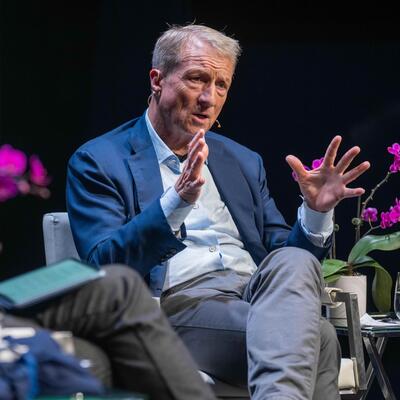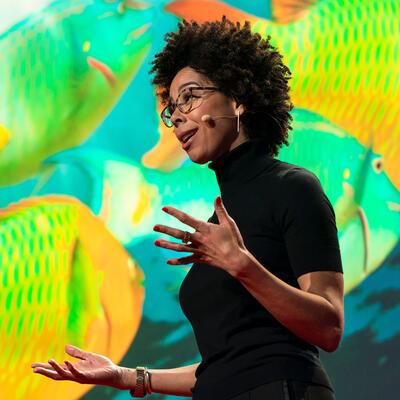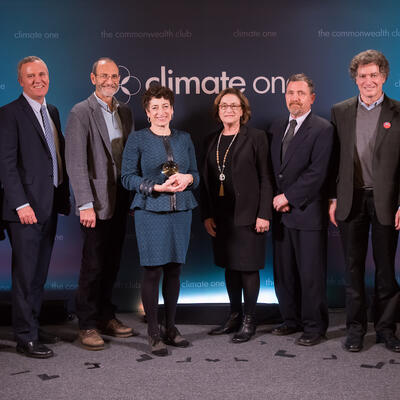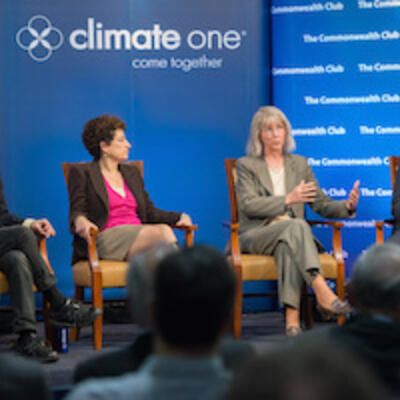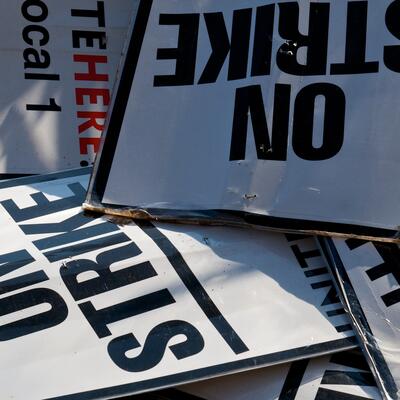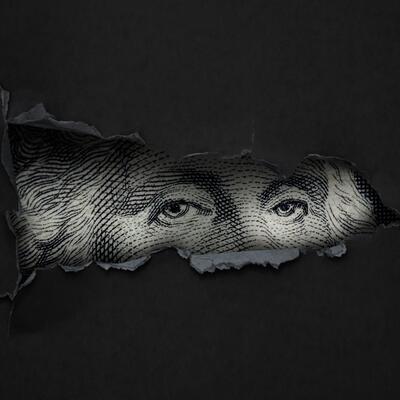
Naomi Oreskes, David Gelles and The Myth of Free Markets
Guests
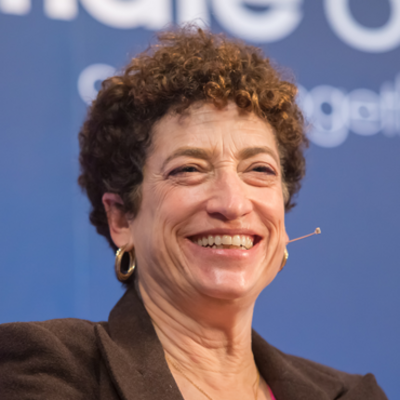
Naomi Oreskes
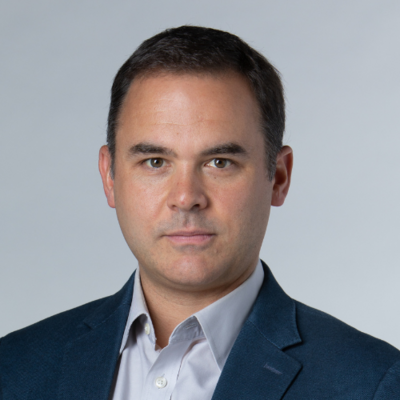
David Gelles
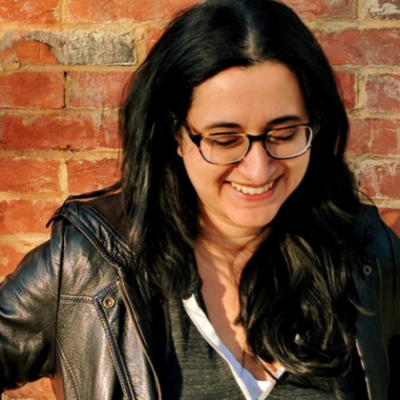
Kate Khatib
Summary
Many on the left say that the growing climate crisis is the inevitable result of unbridled capitalism – industries seeking profits above all else. In “The Big Myth,” Naomi Oreskes (who brought us “Merchants of Doubt”) points to a concerted effort from American business groups to propagate the myth that only markets free of government regulation can generate prosperity and protect political freedom.
“If we actually had appropriate regulations, appropriate rules of the road, we wouldn't be in this position of having to beg corporate leaders not to destroy the planet,” Oreskes says.
This myth has grown so pervasive that American citizens now put more faith in CEOs than in religious leaders, according to David Gelles, author of “The Man Who Broke Capitalism.” What should be done to change the narrative?
Episode Highlights
5:00 Naomi Oreskes on the big myth of market
11:00 David Gelles on the influence of GE CEO Jack Welch and his view on climate
13:30 Adam Smith is more nuanced than you think
17:00 Lionization of business leaders in many areas, including climate solutions
24:00 Individual freedom versus corporate freedom
28:00 Influence of Milton Friedman
33:30 Ronald Reagan and anti-government viewpoints
40:00 Who controls the narrative?
46:00 Kate Khatib on worker-owned cooperative financing models
51:30 Cooperatives can participate in and also challenge capitalism
Resources From This Episode (4)
Full Transcript
Note: Transcripts are generated using a combination of automated software and human transcribers and may contain errors. Please check the actual audio before quoting it.
Greg Dalton: This is Climate One, I’m Greg Dalton.
Ariana Brocious: And I’m Ariana Brocious.
Greg Dalton: Many on the left say that the growing climate crisis is the inevitable result of unbridled capitalism. And market fundamentalists argue that loosely regulated markets allow for the best economic outcomes. But that view ignores a key reality:
Naomi Oreskes: The whole ideology is fundamentally based on a lie. It's based on asking us to trust that these corporations will behave themselves, when in reality we have abundant evidence that they don't.
Ariana Brocious: That’s Naomi Oreskes, professor of the history of science at Harvard. Her earlier book, “Merchants of Doubt,” detailed how corporate executives and a handful of rogue scientists helped mislead the public about several subjects, including climate change.
Greg Dalton: In her new book, “The Big Myth,” Oreskes and her co-author Erik Conway point to a concerted effort from American business groups to push the myth that only unbridled markets can generate prosperity and protect political freedom. I’m intentionally using the term unbridled or unfettered markets because no market is absolutely free, despite what I learned in my first high school economics class in the early 1980s.
Naomi Oreskes: The reality is that government has always been involved in the marketplace for better or worse. But the idea that business leaders somehow do this all on their own because they're so tough or so smart or so talented is really part of the myth.
Greg Dalton: On today’s show we talk with Oreskes about how industry’s push to limit the role of government has amplified the climate crisis.
Naomi Oreskes: If we actually had appropriate regulations, appropriate rules of the road, we wouldn't be in this position of having to beg corporate leaders not to destroy the planet.
Ariana Brocious: We also invited New York Times reporter David Gelles to join the conversation. His book, “The Man Who Broke Capitalism” profiles General Electric CEO Jack Welch, and explores how he exploited the myth of the markets and undermined the foundation of what - for most of the twentieth century - had been held up as a model corporate citizen. Welch’s singular focus on increasing profits – at the expense of all else, including the environment–set the tone for decades to follow.
David Gelles: It's an extractive mentality that I think so much of American industry inhabits when it comes to their relationship with nature. And it was crystallized by so many of the actions that Jack Welch and GE took.
Greg Dalton: For more than 50 years, fossil fuel companies suppressed climate information from their own scientists to serve their short-term financial interests. That’s what the rules of the game incentivize them to do. And they’ve continued to do so even as climate disruption grows greater every day.
David Gelles: They’re still out there funding climate denialism. They're still out there trying to interfere with regulations that would actually constrain their ability to continue to extract and emit fossil fuels.
Greg Dalton: I wanted to bring David Gelles and Naomi Oreskes together on this show because their work is so complementary - looking at the sweep of economic history from Adam Smith to Milton Friedman to Jack Welch and the present day. It’s the backstory of today’s hypercapitalism; this idea that shareholders are all that matter. That shareholder primacy is a big obstacle to moving toward cleaner energy, which has short term costs and big long-term benefits.
Ariana Brocious: We frequently hear that our consumer-driven lifestyles, particularly for those of us in the Global North, are a main contributor to climate-harming emissions. And the connection between individual freedom and consumption has been bolstered by the fossil fuel industry. Petroleum and its products are the mainstay of that consumer economy.
Greg Dalton: That has deep roots. Naomi reveals an effort in the early 1900s by industry groups to shape school textbooks and public policy. One memorable gem is a pamphlet from the National Electric Light Association titled the Romance of the Kilowatt.
Ariana Brocious: Now let’s hear the conversation with Naomi Oreskes and David Gelles.
Greg Dalton: One of my pleasures at Climate One is introducing people who know of each other work in the similar space, but maybe are talking for the first time.
So I'm just curious, you know, have you met before David and Naomi? Is this your first time conversing? What? Do you know of each other in your work?
David Gelles: No, we have. Not met in person and absent a tech check last week, we've never spoken. So I'm so excited because for years, uh, I've been familiar with Naomie's work. I've read it, I've mulled over it. It's kept me up at night. And so this is a real delight. Great.
Naomi Oreskes: Thanks. Yeah, and I really enjoyed reading your book. I do think Greg was a great idea to bring us together. Cause our books are so complimentary.
Greg Dalton: Thank you. I read so much and was like, oh, these two ought to talk. Cuz, cuz you know, Naomi, you, you go deep on history and David is also, you know, the book on Welch, of course going back decades, but you know, such contemporary reporting. So I'm really excited to bring together history and today, together with both of you. So, Naomi, many on the left argue that climate chaos is a symptom of capitalism. You argue that it's not capitalism itself that is to blame, but market fundamentalism. How do you define market fundamentalism and distinguish it from capitalism?
Naomi Oreskes: Market fundamentalism is the belief that we can just trust markets to solve our problems. We think of the big myth as having three parts. The first part is the idea of the free market that there is or ever could be such a thing as the free market that stands apart from human culture institutions. That's wrong. The second is the idea that markets have wisdom, that they're efficient, that they have agency. And so we should just trust the market to do its magic, and government needs to get out of the way, lest the government distort the marketplace. And then the third part of it, and this is the part I think is most pernicious, is the claim that markets don't just protect, they don't just give us goods and services, but they actually protect our freedom. That economic freedom is a bulwark against totalitarianism and therefore that any compromised economic freedom, even for something seemingly reasonable like regulating tobacco, puts us on a slippery slope to socialism, communism, or worse. So that's the myth, that's the mythology. But the reality is that if we think about what capitalism is, well that's a much more complicated story. The capitalist system, as we know it, has changed a lot over time. The world we live in today is very different than the world that Adam Smith was talking about in 1776. Different countries that all self-identify as essentially market-based economies, manage their economies in quite different ways, have very different balances between market forces and governance and governmental forces. So there are many choices available to us about how we manage capitalism. And so part of our, the point of our book, and I think David's book does this as well, is to point out and remind people that people have made choices that have brought us to where we are today, and we have the potential to make different choices.
Greg Dalton: And we'll get into that in a minute with David about kind of the pre Jack Welch capitalism and how that's different than what we have today. The origin of corporate America's aggressive efforts to shape public policy and academic discourse is often cited as a 1971 memo written to the US Chamber of Commerce by Lewis Powell two months before he ascended to the US Supreme Court. The Powell memo is quite well known in some circles, but Naomi, you write there was a coordinated effort by the National Association of Manufacturers beginning much earlier, in the early nine hundreds to push the myth of market fundamentalism, to argue against restrictions on child labor. What did that group and the National Electric Light Association do to shape public policy and the story of American success and prosperity?
Naomi Oreskes: Many people think that the history of market fundamentalism and the pernicious business influence in American culture begins with the Powell memo. But we show in the book that it's really the middle of the story. And in fact, we trace our story back to the early 20th century. So in the beginning of the 20th century, there was a robust debate taking place in the United States and also in Europe about the social costs of capitalism and about the problem of monopolistic practices. And one part of that argument centered around what people call natural monopolies: businesses in which competition just really didn't make sense because it would be too expensive or too competitive to build, for example, competing electricity lines. And so electricity was one of the key industries that was recognized as a natural monopoly. And governments gave the electricity industry licenses to operate in certain areas. And essentially to function as monopolies. Well, this model had worked well in American cities. By the 1920s, all American major American cities had electricity. Most Americans in cities like New York, St. Louis, Chicago had electricity, but rural customers were almost entirely unserved. And this was recognized as a market failure, that the electricity industry was not serving people. So even though there was a demand, it was in a way violating the law of supply and demand. There was great demand for electricity in rural areas, but the electricity industry was not supplying it. And so a number of reformers, including progressive Republicans like Teddy Roosevelt and Gifford Pinho, the first head of the US Forest Service, began to propose that there should be some government action to try to make sure that rural customers were served. In response to that, the electricity industry, including Edison Electric, who later become GE, launched a massive propaganda campaign to prevent government action in electricity markets, and they don't do it simply by making the case against government run utilities, for example, they do it by trying to make the case for free market capitalism. So they launched this massive propaganda campaign and one of the pieces we discussed in the book in detail is an attempt to rewrite American textbooks, the textbooks that are used in high schools and college curriculum and civics courses, in economics courses, and in the developing business schools, which are just sort of getting underway in America at this time. And the idea is to write textbooks that promote market fundamentalism, that say that we can trust markets, that markets are wise, that markets are magical, and that government action in the marketplace threatens freedom. And threatens the American way of life. And so in the book we document how very large numbers of textbooks were re rewritten and how the industry pressured schools, libraries, community groups to adopt these textbooks and get rid of a previous generation of textbooks that had been more skeptical about industry and more sympathetic to the idea that there was an appropriate role for government in the marketplace.
Greg Dalton: Sounds like today, one of the ones I love is the romance of the kilowatt. David, you wrote a book about GE’s iconic CEO, Jack Welch, and you write that Jack Welch called climate change “mass neurosis” and “the attack on capitalism that socialism couldn't bring.” You know, how does that illustrate the market fundamentalism Naomi just mentioned and how did he change capitalism?
David Gelles: That quote, in so many ways to me, distills the Jack Walt philosophy at large, which is to say that anything that was in his view going to get in the way of GE achieving what became his singular goal during his 20 years as CEO, which was increasing quarterly earnings, meeting Wall Street's expectations and driving the stock price up, was simply inconvenient, in his way or potentially just not even true. And he approached his role as CEO of what was at the time, you know, one of the most important companies in the country in a way that it's even hard to appreciate these days with this relentless, ruthless, singular approach to running the business with short-term profits in mind at all costs. And the truth is, he did not dwell on climate change. That was, you know, one of the dismissive, remarks he made as a way to sort of brush it to the side, completely dismissing the reality, which was even emerging at that moment in which companies like GE sort of knew full well, which was that of course the burning of fossil fuels as we already understood, and certainly many major corporations, as Naomi has documented in previous books, full well understood was already starting to change the climate. Was already starting to change the weather patterns, the heat on the planet, and would ultimately, they knew this, start to have long-term implications, not only for society, but for business as well. And yet they decided to suppress that information to go about as business as usual, because in the short term, when Jack Welch was thinking about what he needed to do in the next 90 days, it simply wasn't a priority.
Greg Dalton: And that kind of, you know, focusing on the stock price above all costs was different than what came before. Naomi, you know, how did this framing of markets and government relate to the writings of the intellectual father of capitalism, Adam Smith, and what parts of how they portrayed capitalism would Adam Smith recognize and not recognize?
Naomi Oreskes: So most people have heard of Adam Smith. Many people think of him as the father of modern capitalism, and if you've never read Smith's work, you might assume that he would approve of the sort of behavior that Jack Welsh undertook, that David described so well. You might think that he believes in free market fundamentalism, just let markets do their magic, everything will be fine and you would be wrong because that's not, in fact, what Adam Smith says in the Wealth of Nations. So the Wealth of Nations is a big, complicated, sprawling book, and it's written in a very verbose 18th century style. But if you actually read it, what you find is that Adam Smith has a rather sensitive and nuanced view of the challenges that are being faced by an emerging capitalist economy. And one of the things he discusses at length is the need for banking regulation. He correctly anticipates all of the problems that we have seen in the 19th and 20th century, that if you let bankers just pursue their self-interest, you can end up with a collapsing bank system that will pull down the entire economy. And he discusses that in 1776. He also discusses the need for minimum wages that factory owners left to their own devices will pay literally starvation wages. And he discusses how children in 18th century England are in fact starving because their parents don't make enough money to feed them properly. And he discusses the need for taxation to pay for public goods that the market can't or won't provide like roads, bridges, hospitals, and the like. So it's a pretty great book, but it's not what a lot of us think Adam Smith said. So one of the questions we pose, well, why is that? And the answer in part is because George Stigler an economist at the Chicago school, the famous, you know, University of Chicago's Department of Economics, published an edited version of Adam Smith in which he removed all of the places where Adam Smith discussed the needs for tempering self-interest.
Greg Dalton: Wow. And so that gets to it. David, another aspect of the myth making that Naomi talks about is the idolization of corporate CEOs. And certainly Jack Welch was one of the first kind of rockstar CEOs, and you write that to understand a culture, look at its heroes. And surveys routinely show that the public has more faith in CEOs than it does in politicians or priests. More confidence in corporations and government. So say more about why you think that sort of cult of the CEO, how it relates to Jack Welch and where we are today?
David Gelles: Well, I think it goes right back to the early days of this country, right Back to Adam Smith. You know, this, the founding of this country was all wrapped up in our industriousness, right? The Protestant work ethic, the notion of entrepreneurialism and sort of striking out on your own and taking advantage of what this amazing land had to offer as European colonizers took it over and recognized the riches that were under their feet here. The rapid rise of industry in the 17th, 18 19th centuries in this country is all a part of sort of the central mythology of this relatively very new country and culture that we're all a part of. So we didn't have the same sort of cultural history that you might find in other parts of the world. Instead, ours was really a nation born out of yes, rebellion from the British Empire, but also a business acumen and against that backdrop, I think it's perhaps not surprising that as we emerge into the early 20th century and right through it, our biggest heroes, especially in a pluralistic society, some of our central figures, some of the few unifying figures become our business leaders. This is amplified with the rise of the media ecosystem, which is able to, you know, really elevate their stories. And I think it really reaches its apotheosis in Jack Welch, you know, Jack again, the biggest CEO of the biggest company for 20 years. And during his tenure, he makes it literally the most valuable company on earth. He's Lionized. He's mythologized, he's on the cover of magazines. He inspires roles like Jack Donahue on 30 Rock. He goes on to write his own books and create his own little mini media empire. And this continues right to this day with our society's fixation on CEOs, whether it be Warren Buffett or Elon Musk. These have become some of just the totemic figures in our society that so much of the zeitgeist sort of goes in and around and through. And I don't see any sign of that stopping.
Naomi Oreskes: Could I jump in on that? Cause I think it's important to add one point. I I agree with everything David just said about the lionization of business leaders, but I think it's also important to realize that the lionization of business leaders depends to a large extent on a misrepresentation of American history, particularly 19th century history. When the US government and the state governments played a major role in developing the economy through investments in infrastructure, through protective tariffs to protect fledgling industry. And of course, governments were highly involved in things like building the Erie Canal, which was essential for the economic development of New York State and New York City. So, The point, the reality is that government has always been involved in the marketplace for better or worse. Um, but the idea that business leaders somehow do this all on their own because they're so tougher, so smart, or so talented is really part of the myth.
Greg Dalton: You’re listening to a Climate One conversation about the myth of free markets. If you missed a previous episode, or want to hear more of Climate One’s empowering conversations, subscribe to our podcast wherever you get your pods. Please help us get people talking more about climate by giving us a rating or review. You can do it right now on your device. You can also help by sending a link to this episode to a friend. On our new website you can create and share playlists focused on topics including food, energy, EVs, activism. Coming up, the long term influence of Ronald Reagan’s anti-government stance:
David Gelles: There's this inability in the halls of Congress, in so many parts of it at least, to recognize that contrary to what Reagan said, a well-functioning government through so much of the 20th century gave rise to the greatest, most prosperous nation on earth.
Greg Dalton: That’s up next, when Climate One continues.
Ariana Brocious: This is Climate One. I’m Ariana Brocious, and we’re talking about the myths of market fundamentalism and modern capitalism with authors Naomi Oreskes and David Gelles. Later in the show we’ll hear about a different form of business ownership and financing. But first, let’s get back to Greg’s conversation.
Greg Dalton: Naomi, in climate, you know, as David mentioned, we have this lionization of business leaders and we look to them as saviors to help us from the climate disruption. Bloomberg, Branson, Gates, Steyer, Musk, Doerr, the list goes on. Their money and social standing is solicited in the effort to decarbonize the economy. Is that looking for love in all the wrong places?
Naomi Oreskes: You bet it is. Yeah. I mean, this is such a tricky question because I often get asked, well, you know, aren't there benevolent business leaders who are trying to do the right thing? And I think there are some, and we certainly see some corporations that are moving in the right direction, but the scale is too small, the pace is too slow. And part of the problem is exactly what David talks about, the continued focus on the quarterly profits. Because we know that in the long run, if we don't fix the climate crisis, it will do massive economic damage. And we're already seeing big losses in the tens of billions of dollars from extreme weather events that have been made worse by climate change. But in the short run, if I'm a business leader running my particular business and looking over my shoulder at Wall Street, the incentives are all in the wrong direction. And so this is the core problem. And so, you know, one of the things we say in the book is that if we actually had appropriate regulations, appropriate rules of the road whatever we decide those might be, we wouldn't be in this position of having to beg corporate leaders not to destroy the planet.
Greg Dalton: David, tell us about Jack Welch and the Hudson River and how that exhibits a corporate attitude toward nature that contributes to the climate emergency we're living in today.
David Gelles: Well, long before Jack Welch was CEO of General Electric. General Electric was dumping PCBs into the Hudson River. It created a absolute environmental tragedy, and when it came time to actually deal with it and clean it up, that job actually fell to Jack Welsh even before he was CEO. It was one of the responsibilities, sort of it remits he got as he moved up through the company and took more senior leadership roles, he dug in and for more than 20 years, fought the government. Environmentalists, even nuns who were fighting to clean up the river tooth and nail going toe to toe and doing his damnedest not to give an inch, and he managed to keep. Accountability at bay for the entirety of his tenure. It was only after he left that his successor, Jeff Immelt, finally agreed to some token, uh, reparations, if you will, to actually start to do the work to clean up the river. But listen, I'm sitting, I can see the Hudson River from my building and it is still. Suffering from the legacy of what GE did. And that just exhibited again, this sort of disregard for the natural world. It's an extractive mentality that I think so much of American industry inhabits when it comes to their relationship with nature. And it was crystallized by so many of the actions that Jack Welch and GE took.
Greg Dalton: Naomi, you talk about the root of market fundamentalism in another way. We're like, we're atomistic, separate from each other. You reference John Stewart Mill's classic definition of freedom that anyone can do what they want unless it impinges on someone else. Is that true in the age of climate? Chaos where our personal emissions actually directly and unintentionally amplify droughts, fires, and floods that hurt people.
Naomi Oreskes: All of the big environmental issues that I've written about, whether it's climate change, the ozone hole, acid rain, or public health issues like endocrine disrupting chemicals or smoking cigarettes, are all cases where individual actions impinge on the rights, freedom, safety, and wellbeing of other people. And so this is the fundamental problem with an individualistically oriented economy in which we analyze everything in terms of individual choice, individual freedom, whether it's the freedom of the individual consumer or even the freedom of the individual corporation. Whereas the reality is we live in a world where everything is interconnected and as you said, the John Stuart Mill says, well, it's fine fine to do what you want as long as it doesn't impinge on others. And even Friedrich Van Hayak, one of the founders of Neoliberalism said, well, but the problem is you always do impinge. And this is the piece that I think we've had a tremendous trouble coming to grips with in American life because running through all market fundamentalism, running through the Chicago School of Economics, running through every libertarian think tank in the United States is this core commitment to individualism. And you know, if you go back to the Declaration of Independence, the Bill of Rights, the US Constitution, the 18th century focus on individual rights in contradistinction to a tyrannical monarch was a completely understandable position to take in that historical and cultural moment. But here we are nearly 300 years, 250 years later, and that model is failing us. And so I think that unless we have a bigger, broader, more capacious conversation about how we balance individual rights versus the collective good, the commonwealth, right? I mean, I keep coming back to the notion of a commonwealth. This idea that we, we aren't just atomistic, that we actually are in this together, but it's not, it's not the dominant way in which we've thought about problems in the United States.
Greg Dalton: Right. Well, the indigenous people think that way, but David, how do you see the connections between individualism, markets and climate?
David Gelles: Yeah, a few things were coming to mind. I mean, the first is that there has been sort of this pernicious effort by corporate America to sort of foist responsibility for change onto the individual, right? And yes, our individual actions matter, but in the grand scheme of things, you know, us recycling is not gonna solve the problem. We need massive, industrial, systems level change, as Naomi was just saying, we need a wholesale remaking of our energy system. We need to figure out how to produce goods and services without emitting carbon and methane. We gotta figure out how to grow enough food for the billion people in this hemisphere more than that without destroying the land and leaving it, you know, completely arid. So we’ve got massive problems. But there is still this sense that like, individuals, that you and I somehow hold the keys to solving the climate crisis on our own. Instead, it's on government. I mean, it's on corporations, yes. But it really comes back to smart regulations, smart, effective, enforceable, powerful regulations. The sort of mechanisms that actually force industrial change in the right direction. And frankly, we're just seeing far too little of that. I think the IRA is a baby step in the right direction, but it's all carrot and not a lot of stick. The fact that most Americans and even most CEOs are aligned on supporting something like a carbon tax, but our Congress won't, it's a non-starter. I mean, it just shows what a massive disconnect there is between the policy makers in this country and the work that is really necessary to get where we need to go from an emissions perspective and the magnitude of the problems we're facing right now.
Greg Dalton: Right. We have this throughout our culture. Think of Smokey the Bear. Only you can prevent forest fires. The crying Indian advertisement that was actually backed by the beverage container industry. You know, people start pollution. People can stop it. And BP popularizing the personal carbon footprint calculator. Economist Milton Friedman helped establish the primacy of shareholders over other stakeholders, employees, communities, customers, and David you write that Jack Welch operationalized that doctrine. In 1970, Milton Friedman explained his economic philosophy in an article in the New York Times magazine, in which he said, quote, there's only one. And only one social responsibility of business to use its resources and engage in activities designed to increase profits so long as it stays within the rules of the game, which is to say engages in open and free competition without deception fraud. David, your thoughts on how Jack Welch operationalized that doctrine.
David Gelles: Well, it's important to note that Milton Friedman, of course, was another University of Chicago legend, and it's hard to overstate the degree to which one academic institution in the middle of the country actually has had so much sway over our economic policy and thinking over the last half century or more. One of the things that I always wrestle with when I come back to the, the Friedman Doctrine, as it were, and that seminal piece in the 1970 New York Times magazine, is that there, you know, he, he said what he said, but there, if you read between the lines, as is the case with Adam Smith, there's actually some nuance in there, but just as happened earlier at the University of Chicago when there was sort of an abridged edited version of the Wealth of Nations to oversimplify and perhaps distort its true intention, that is what has happened with Milton Friedman as well. Whatever nuance there was, and I'm not saying there was a whole lot. He meant what he said, but whatever traces of nuance there were were stripped away and instead it really was boiled down. His entire philosophy was boiled down to the subhead of that magazine article, which was the social responsibility of a business is to increase its profit, which creates this dichotomy, right? That's an either or framing which means that the social responsibility of a company is not to take care of its people, it's not to take care of its communities, it's not to take care of the planet. It's money above all else. Jack Welch himself was the embodiment of that. And indeed, in his own autobiography, he paraphrases Milton Friedman and towards the end of one of the early chapters, he goes on to say the responsibility of a business above all else is to increase its profits. A direct echo of Milton Friedman.
Greg Dalton: And Naomi. I noticed that at the end of that, that statement from Friedman in that New York Times article, he says, open and free competition without deception or fraud, which raises the question of your work about Exxon.
Naomi Oreskes: Thank you. So this is where, When we begin to scratch below the surface, there's just huge amounts of hypocrisy and even dishonesty in a lot of these arguments. Because you're right, Milton Friedman says, yeah, as long as without deception or fraud, but we know there's a huge history of deception and fraud in corporate America, including at General Electric. So there are many ironies in our book, and one of my favorite is that General Electric in the 1950s. Aggressively promoted free market ideology. Hired Ronald Reagan to help them do that, had a television show, General Electric Theater that every week sent a story into millions of American homes promoting didactic stories of individual success through hard work without help from the government or anyone else. But while they were promoting free enterprise capitalism on television into their own workers, they were conspiring to rig electricity markets for which they were prosecuted in the 1960s and convicted. And, some GE executives also Westinghouse. It was a conspiracy with GE, Westinghouse and the other major electricity companies and some executives actually went to jail. So, um, you know, they were convicted of fraud and a conspiracy to commit fraud, conspiracy to rig electricity markets. So there's deception and fraud throughout this history. So the whole ideology is fundamentally based on a lie. It's based on asking us to trust that these corporations will behave themselves, when in reality we have abundant evidence that they don't. And just one other quick thing. One of the key pieces of that quotation you just read is when Friedman says so long as they stay within the rules of the game, but not only do they not stay within the rules, the game, they engage in monopolistic practices, you know, deceptive advertising, et cetera, but also they use those giant corporate profits to change the rules of the game to lobby congress, to hire smart lawyers and also to prevent enforcement. And so one of the key things that the Chicago School of Economics does in the fifties and sixties and into the seventies is to develop a set of arguments against antitrust enforcement. And these become very, very influential and powerful. So from about the 1980s until really today, we have seen massive non-enforcement of antitrust statutes, which were designed to protect the rules of the game and to protect competition and to protect against the development of monopolies.
Greg Dalton: You mentioned Ronald Reagan and his connection with GE bringing this story into American living rooms. I didn't realize before your book that you know, he went into GE a New Deal Democrat, and came out an anti-government conservative Republican. I wanna play a clip from Ronald Reagan, which I'm sure you'll recognize.
Ronald Reagan: In this present crisis, government is not the solution. Government is the problem.
Greg Dalton: What do you each feel when you hear that?
Naomi Oreskes: I feel sad, heartbroken, really because of all the bad things that have happened in American politics and in my lifetime. I think that was by far the worst because Reagan turned the American people against their own government and persuaded us that rather than seeing governance as the means by which people can express their will, and the means by which ordinary citizens can be heard, he persuaded millions of Americans to think that government was the enemy to hate the government, and to disbelieve in the capacity of government to address our problems. And when government is incapacitated, it really does leave us at the mercy of the private sector, the goodness of the hearts of corporate America. And as we've just seen, certainly in the case of GE, but in lots of other corporations as well that have been well documented, there's some pretty cold-blooded stuff happening in the heart of corporate America.
Greg Dalton: David?
David Gelles: I can't help but hear echoes of today's rhetoric on the far right, the vigilantism, the absolute unwillingness by so many in Congress to to have faith that the government that helped get us this far, that is created, you know, the infrastructure that we depend on, the social structures that have allowed so many people to flourish…there's this inability in the halls of Congress in so many parts of it, at least to recognize that contrary to what Reagan said, that was actually one of our greatest virtues. Right. A well-functioning government through so much of the 20th century gave rise to the greatest, most prosperous nation on earth. And you can really track our decline to that moment, right, to when Reagan turns his back on our own government. A lot of the macroeconomic indicators, a lot of the socioeconomic indicators that really reveal the health or distress of our nation start to move in the wrong direction at that very moment.
Greg Dalton: Concentration of wealth and, and power, et cetera, which raises the question for me of, climate change had become a more pressing issue in the fifties before Ronald Reagan, before Milton Friedman, and this idea of CEO's only responsibility is to shareholders. I realize this is speculative. But how would corporate America have responded differently in a pre-Welch, pre-Reagan capitalism?
Naomi Oreskes: Erik Conway and I talk about this in our earlier book, merchants of Doubt, and there's a way in which this whole story is an incredible bad luck story. Historians always like to talk about historical contingency, and there is something really tragic about what happened in the 20th century. So as regular viewers of this podcast know, scientists had been warning about the possibility of climate change for a long, long time, we can trace as a historian of science, I can trace that back to the 1890s, the work of Svante Arrhenius, work in the 1930s, but then from about the fifties onward, a really sustained interest in this problem. So this scientific evidence begins to coalesce right at the moment when Reagan is coming to power and putting market fundamentalism into the White House, into Congress and saying, government's not the solution, government's the problem. By the eighties, lots of economists are talking about potentially putting a price on carbon, but it doesn't happen to a large extent because these market fundamentalist ideas have now been in place and come to the fore and been adopted by the Republican party.
Greg Dalton: Right. And now we've seen something of a shift, you know, maybe the pendulum swinging back. David, you've written a lot about the shift to quote stakeholder capitalism where corporate leaders view shareholders. Those only, only one of many constituencies to value, you know, pre-Welch view, the business roundtable, you know, made a shift saying they have to look at more than just profits. You know, is that pendulum really swinging backward? Is this move toward environmental, social, and governance meaningful?
David Gelles: I think it's meaningful, but I also think it's insufficient and too late. There's no doubt that over the last, however you want to count it, five, 10 years, the CEOs who run the biggest companies in the country and around the world really have taken a keener eye towards taking care of their people, of their communities, and of the planet. And I would say roughly in that order, I mean, I think the environment or maybe you know, people, then the environment, then communities, but all, all of which is to say, There's a lot that they're all trying to play catch up with, right? Like there, there's a recognition I think that, oops, for the last 50 years or so, we've been in neglecting taking real care of our frontline workers. As a result, the communities they live in have suffered. And oh, by the way, we haven't been giving any thought to our emissions or our impact of nature. So there's a lot of catch up happening right now, I think on the climate level, some big corporations, the Googles of the world, even the Targets and the Walmarts of the world are in fact like making pretty meaningful strides. But listen, individuals make an iota of a difference. Even big corporations like that, they move the needle a little. The real action is at the energy production level and the energy consumption level. And by that I mean, how are we producing our energy? How are we fueling transportation? And when you look at how those industries have responded in this moment, it's drastically insufficient. To the contrary, they are still perpetuating the same playbook that Naomi has documented so thoroughly. They're still out there funding climate denialism. They're still out there trying to interfere with regulations that would actually constrain their ability to continue to extract and drill and emit fossil fuels emissions without any abatement for the next hundred years.
Greg Dalton: And Naomi, on one level, this is about protecting fossil fuels on another. It's about controlling the narrative of American prosperity, which has been woven together with fossil fuels. How do you see this? And how do you change it?
Naomi Oreskes: Well, I think what you said is exactly right and that's why we've written this new book, The Big Myth, because it's really about who controls the narrative. So if you can persuade American people that their own prosperity, their own wellbeing relies on the free market, on letting business leaders do what they think best and not regulating them, not controlling them, not protecting workers or communities, then the business world gets to do whatever they want and ExxonMobil gets to continue producing fossil fuels, as David just said, for another 50 or a hundred years. And they do this with a kind of reckless disregard for the consequences other than the shareholder, you know, quarterly profit consequences. But if you can change the narrative and remind the American people that actually what they've been told isn't true, it's not true of American history, it's not true of economic history. It's not true of what's good for their own lives. And if you can open up a conversation about what the alternatives could look like, what they do look like in some other countries, then it seems to me you can, you can make real change. I think one thing that history does show very strongly, Is that social change is really tied up with cultural narratives and social change happens when people begin to think differently about a problem, and particularly when something that they used to think was acceptable or at least tolerable, like, for example, slavery or Jim Crow segregation, people begin to say, this is no longer tolerable.
Greg Dalton: David, very powerful people look at climate and say, this is bigger than even my corporation, my country. The subtitle of your book is How Jack Welch's Legacy can Be Undone. How can Jack Welch's legacy be undone?
David Gelles: Well, full disclosure, my editor made me put that in there. I didn't wanna write that chapter because the truth is I'm an optimistic guy at heart, but I don't at all dismiss the magnitude of the problems at hand. Listen, I, I think we are at a moment though where, As Naomi said, you know, there is a real reassessment of the dominant narrative, it's getting too hard to ignore the scale and severity of the problems that we face as a nation, as a society, as a planet, and accordingly, I think we're starting to see some real attendant action, certainly by engaged consumers. To a lesser extent, perhaps by virtuous moralistic CEOs who I do believe want to do their part. I've met hundreds and hundreds of CEOs over the last five years, 10 years as a reporter, and very few of them I think are like bad men and women who are trying to, you know, screw over the earth, but they're playing within a system that incentivizes the wrong sort of behavior. And that's why again and again in this conversation, we keep coming back to the role of government. At the end of the day, if we're gonna be able to change the way our companies operate, if we're going to be able to truly undo Jack Welch's legacy, that's not a project for individuals or even CEOs themselves. That's ultimately a project for smart regulators who can mind effective ways of creating the kinds of guardrails that Adam Smith himself noted were necessary for the functioning of a truly prosperous society.
Greg Dalton: David Gelles is a reporter at the New York Times and author of The Man Who Broke Capitalism, how Jack Welch gutted the heartland and crushed the soul of corporate America and how to undo his legacy. Naomi Oreskes is professor of the History of Science at Harvard University and co-author of the new book, The Big Myth, How American Business Taught Us to Loathe the Government and Love the Free Market. David and Naomi, it's been an honor to bring you together and, and this very important conversation of respect, both of your work. And thank you very much for coming on Climate One.
David Gelles: Thank you.
Naomi Oreskes: Thank you. It's been great.
Greg Dalton: As of this week, David Gelles is the new managing correspondent for the Climate Forward newsletter from the New York Times. Coming up, a look at financing an alternative approach to business – worker-owned cooperatives:
Kate Khatib: It's really antithetical to the nature of a worker cooperative when you say that the people who have the most resources and have the most access to capital are the only ones that can get financing to grow their business.
Greg Dalton: That’s up next, when Climate One continues.
Greg Dalton: This is Climate One. I’m Greg Dalton. We’ve just heard critiques of modern capitalism and market fundamentalism. Now we’ll hear about a different approach to business. Kate Khatib is Co-Director of Seed Commons, a national network of locally rooted, non-extractive loan funds. She’s also co-founder of Red Emma’s, a cooperatively-owned restaurant and bookstore in Baltimore. Khatib explained that her experience trying to get financing for Red Emma’s led her to understand the need for a different system. That put her on the path to developing Seed Commons to support other worker-owned businesses.
Kate Khatib: So when we were trying to expand in 2013, we went to banks that we had had relationships with for close to a decade at that point. And we said, you know, here's our, here's our history, here's our business plan. This is what we're trying to do. We need a fairly, you know, pretty moderate amount of money. I think we needed around $150,000 to do this expansion. And we said, would we be eligible for a loan? We have positive cash flow, we have some, some small amount of assets that the business owns. And they said, well, who are the owners of the business? And we said, well, there are 12 of us. Here's everybody's names and social security numbers. And they took one look at it and they said, Yeah, we're not gonna do that. Give us the three people who have the best credit and have the most personal assets. We're gonna put the loan in their name and then we'll give you a loan for the business and for us, you know that’s a structure that doesn't work. I mean, in the first place, many of us are career service workers or organizers. We don't have a lot of personal assets that we're able to leverage. And also we didn't want to introduce that kind of a division into our cooperative where some people have more on the line than other people do. It's really antithetical to the nature of a worker cooperative when you say that the people who have the most resources and have the most access to capital are the only ones that can get financing to grow their business. It's really a particular logic of exclusion that is embedded in the entire notion of credit, and credit worthiness that we were really trying to get beyond and get around. And it wasn't just us, Red Emma's had that problem, but a number of other cooperatives that were trying to grow at the same time, were running into very similar issues. And so all of us in Baltimore, but also around the country, started coming together and saying, you know, there's, there's not enough financing for businesses like us. We have to work together to build something that understands what broad-based ownership looks like.
Ariana Brocious: And so one of the aspects of Seed Commons’ financing model that I think is really interesting is that you don't use credit scores. That's not part of it. And, and that you, in order to mitigate the risk that can come from funding other businesses, you have a really tightly collaborative relationship between the funder and the enterprise. So can you tell us a little bit about that and how that sort of insulates Seed Commons in a way, as a funder, but also helps the businesses?
Kate Khatib: Absolutely. Yeah, that's right. We have what we call a non-extractive model of finance. And there's a few different ways that the type of work we do is non extractive. So the first and most important is what you just mentioned. We don't look at credit scores. We don't look at the same traditional factors that banks and corporate lenders use as a way of evaluating credit worthiness. We look at the business itself. We look at its history. We look at the plan that the workers have put together for how the business is gonna grow and where they're trying to go. And what we do is, is work together with the workers to create something that we call a sustainability plan. So the idea is we want to figure out what it's gonna take to get those workers from where they are now, to the point where their business becomes sustainable. Sustainability means in this case, the workers are paid, at a living wage. They're able to cover their overhead. They're able to put a little bit into savings for, for future needs. and then, and only then do they start paying their debt back. So all of the repayments on our loans come out of the net profits of the business. That's the other kind of core piece of non-extraction. We're not gonna take money out of a business that it needs to survive. It doesn't help us as a lender. It doesn't help them, it doesn't help the business, it doesn't help the workers. We have to understand that financing worker-owned businesses and financing small businesses in general really works best when it's done in partnership. We couple our loans with very high touch technical assistance, so we work in partnership with our businesses. Sometimes we're there helping to paint the walls and get the doors open if that's really what's needed. Sometimes it's just helping them with pivot plans when things don't go the way that they expected because in small business things are always changing and you're always having to adapt to the conditions around you. That's best done locally and that's the reason that Seed Commons has adopted this structure of don't just build one giant loan fund with loan officers in a New York City office; actually work with communities of businesses and workers around the country to build the infrastructure for doing this non-extractive lending and providing this technical assistance. Cause really, I, I have a better sense of what the needs are in Baltimore than somebody who lives in a different city, in a different place in the country.
Ariana Brocious: I'm curious if Seed Commons creates profit for those who invest, and if that's the case, is part of the goal to make investing in Seed Commons as appealing as investing in standard financial mechanisms like, you know, mutual funds or something. Or is the idea to sort of get away from that model entirely and do something different?
Kate Khatib: Our goal at Seed Commons is not to maximize the return to the investors. Our hope is to give a return to the investors, and we do that by leveraging their investments across the entirety of our portfolio. So whereas in a, in a more traditional private equity relationship, investors would be going into directly into a business and then their returns and also just the, the stability of their investment would be based, you know, really one-on-one on the performance of that business. We leverage those investments across the entirety of our portfolio. So you can be an investor in Baltimore. You can wanna make an impact by supporting Baltimore cooperatives, you're still gonna make an investment in the larger Seed Commons fund and whether or not your investment has a return, it depends not just on the health of the Baltimore co-ops, but the co-ops all around the country.
Ariana Brocious: So let's talk about how you view capitalism. And I'm curious to know if you think that the worker-owned model is a challenge to what most people think of as capitalism.
Kate Khatib: You know, I think cooperatives can be used in a couple different ways. You can use a cooperative as a way for a group of members to work together to be able to participate, more fully in, in capitalism. So a great example is when you have something like a purchasing cooperative. So Ace Hardware is a group of individually owned stores that aggregate their need for things like nails, different things that you can buy at a hardware store. And what they do is purchase collectively. So that they're able to purchase in larger quantities and then distribute through all of their individual stores, that means that they're able to get the same kinds of pricing that a Home Depot or a Lowe's, something that a big multinational corporation is able to get. That's a way that you can use collective action or cooperative action as a way to, to be able to be more successful in capitalism, right? You can also use a cooperative as a way to resist capitalism, right? So for example, you can have a group of worker-owned businesses around the country who say, we are gonna create a financial cooperative because we are finding that we are excluded from traditional finance, so we're gonna create an alternative structure that allows us to grow and to thrive and still keeps the kind of control of capital in our hands. Seed Commons in particular is an example of ways that you can use cooperative structures and collective organizing as a way to resist capitalism, right? To push back against it. These are both great ways to be a co-op. They're both great reasons to be a co-op. I think there are additional elements that you see within cooperatives that do present more of a challenge to some of the logic of capitalism, especially around the way that labor generates surplus value. In a workaround cooperative. We don't have the same pressure to scale right when we're trying to grow a workaround cooperative, what we're really trying to do is grow to a scale that's sustainable and appropriate for the workers as opposed to what I think we tend to see in the kind of rampant expansion logic of capitalism, which is always driving towards more profits, more profits, more production, more surplus. We're not trying to do that with a worker-owned cooperative. We're trying to grow sustainably. So it really, I think, challenges some of that logic in a really fundamental way.
Ariana Brocious: As we wrap up here, what's your personal vision for how the economy runs?
Kate Khatib: Well, one thing that comes up a lot, and this is maybe going back to this question of scale, when you talk about scale and co-ops, it's not just about having. You know, one cooperative that has hundreds of thousands of workers. It's about thinking about the different ways that we can chain together needs. We can stack things together to actually create a really living ecosystem that can transform and and really replace the current economic structure. That's what I would love to see
Greg Dalton: Kate Khatib is Co-Director of Seed Commons and co-founder of Red Emma’s.
On this Climate One... We’ve been talking about the myths of free markets, today’s hyper capitalism and its ties to the climate crisis. One’s empowering conversations connect all aspects of the climate emergency. To hear more, subscribe wherever you get your pods. Talking about climate can be hard — and it’s critical to address the transitions we need to make in all parts of society. Please help us get people talking more about climate by giving us a rating or review. You can do it right now on your device. You can also help by sending a link to this episode to a friend. By sharing you can help people have their own deeper climate conversations. Brad Marshland is our senior producer; Our managing director is Jenny Park. Ariana Brocious is co-host, editor and producer. Austin Colón is producer and editor. Megan Biscieglia is our production manager. Wency Shaida is our development manager, Ben Testani is our communications manager. Our theme music was composed by George Young (and arranged by Matt Willcox). Gloria Duffy is CEO of The Commonwealth Club of California, the nonprofit and nonpartisan forum where our program originates. I’m Greg Dalton.

